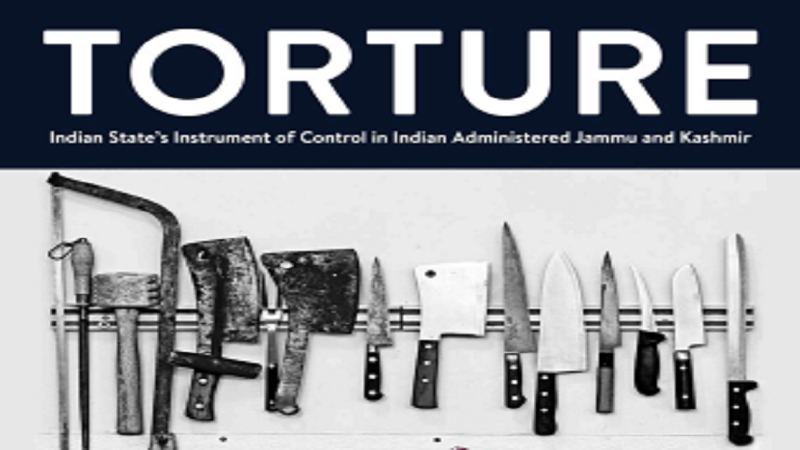By Anees Teladia
For decades the Kashmir region has existed under a state of disputed control. This disputed control of the region has primarily been between the Indian government, the Pakistani government and groups of Kashmiri people who would prefer Kashmir’s independence. The Indian-controlled Jammu and Kashmir has once again come under the limelight for human rights violations perpetrated against the Jammu and Kashmiri people, allegedly by the Indian Army. A new report, titled “Torture: Indian State’s Instrument of Control in Indian administered Jammu and Kashmir” has been released, highlighting 432 cases of the thousands of others which have flown under the radar. The report makes for truly appalling reading and would send shivers down anyone’s spine.
The report shows that of the 432 cases of torture studied:
- 70% of those tortured were civilians
- 238 faced sexual torture
- 190 were stripped naked
- 326 were beaten with iron rods and/or leather belts
- 169 had rollers put on their legs (rollers are used to apply insufferable pressure on the legs)
- 101 detainees were waterboarded
- 231 were electrocuted (including on their genitalia)
- 121 were hung upside down
- 35 were burned with hot objects
- 21 were deprived of sleep
- 11 were left in solitary confinement
One of the researchers involved in the report, Shazia Ahad spoke to VOC’s Ramadan AM show and told listeners that despite the staggering figures, the struggles and suffering of the Kashmiri people under Indian control are neglected.
“It’s the most underreported form of human rights violation, yet the presence of torture is common knowledge in Kashmir,” said Ahad.
“The report’s compilation and research were even more important because in Kashmir there’s a silence around it. The report was meant to break that silence.”
“Most victims of any kind of human rights violation are those victims of torture…but still you hardly find it reported on in the media.”
Ahad argues that while 432 cases were studied in this report, these cases are just the tip of the iceberg in terms of reflecting the quantity of victims of torture in Jammu and Kashmir. She also added that the number of victims and the recurring abuse is indicative of an institutionalised, systemic and systematic pattern of torture and human rights violation.
“These cases are just the tip of the iceberg when talking about the magnitude of the presence of torture victims in Kashmir. It’s very difficult getting people to talk,” said Ahad.
“As we mention in the report, there are tens of thousands of torture victims. If we say that there are more than a hundred thousand victims of torture in Kashmir, it would not be an exaggeration.”
“But to get an exact number is difficult because people don’t report it and there have been many deaths consequent to torture. So, putting a number on how many victims there are will be very difficult…according to estimates, it’s more than 100 000 people.”
Ahad then elaborated on the allegation of torture being systemic, systematic and institutionalised.
“We can use these case studies to expose the patterns of how torture has been used systemically and systematically in Jammu and Kashmir.”
“These tortures are not once-off. You cannot say these torturers are rogue elements in the Indian Army. You will find a pattern and a trend and see that the torture has been used systematically and used in an institutionalised manner.”
“When torture is so rampant and not a single prosecution has taken place, it can only tell you it [torture] has the backing of the Indian state,” said Ahad.
Ahad hopes that this report will finally shed light on the plight of the Jammu and Kashmiri people and that it can contribute to bringing about the end of torture in the region.
“In India, there is no law criminalising torture,” said Ahad.
“We just hope that this report is the beginning of the end of torture in Jammu and Kashmir. We want people to know and to talk about these human rights violations.”
VOC






 WhatsApp us
WhatsApp us 

